


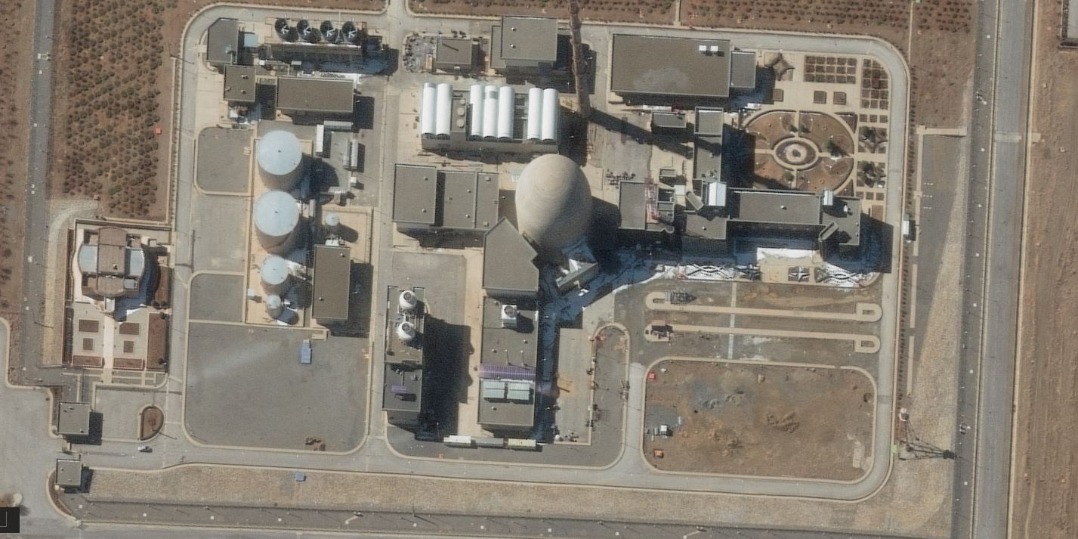
Iranian nuclear facilities may have largely survived attack, initial report says.
UN chief welcomes Trump's announcement of Israel-Iran ceasefire and urges Israel and Iran to fully respect the ceasefire and to stop fighting.
TEHRAN - Iran's atomic chief said on Tuesday that no pause would take place in the country's nuclear activities, according to state-run IRIB news agency.
President of the Atomic Energy Organization of Iran Mohammad Eslami made the remarks during an interview while pointing to the attacks by the United States and Israel on Iran's nuclear facilities, the report said.
"We have made the necessary arrangements and preparations and are assessing the damages," Eslami said, stressing that preparations for reviving the country's nuclear facilities had been anticipated in advance.
He emphasized that the country has plans to prevent any pause in its nuclear production and services.
On June 13, Israel launched major airstrikes on different areas in Iran, including nuclear and military sites, killing several senior commanders, nuclear scientists and civilians. Iran responded by launching several waves of missile and drone attacks on Israel, inflicting casualties and heavy damages.
The United States on Saturday attacked three Iranian nuclear sites --Fordow, Natanz and Isfahan. In retaliation, Iran on Monday targeted US Al Udeid Air Base in Qatar with missiles.
Shortly after Iran's retaliatory attack, US President Donald Trump on Monday night announced that Israel and Iran had reached a formal agreement to implement a complete and total ceasefire, marking what he called the end of the "12-Day War".
Nevertheless, Israel on Tuesday morning claimed it had detected new missile launches from Iran -- a charge denied by the Iranian military.
TEHRAN - Iran on Tuesday rejected reports of having launched missiles towards Israel following the ceasefire declared between the two sides earlier in the day, the semi-official Tasnim news agency reported.
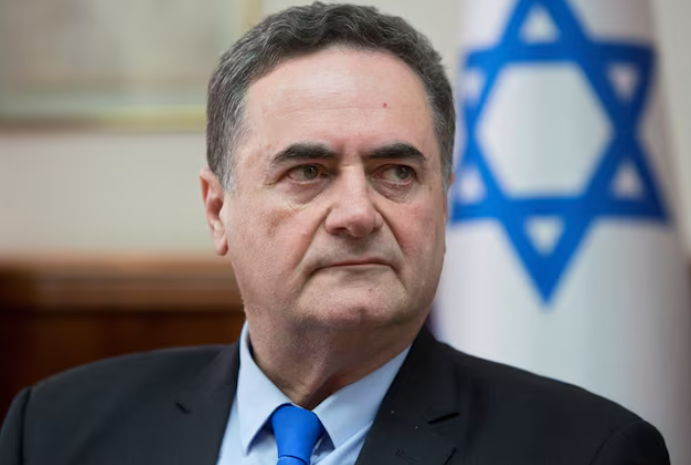
JERUSALEM/TEHRAN - Israel said on Tuesday it had identified missiles from Iran, shortly after the Israeli authorities said it had accepted a ceasefire proposed by US President Donald Trump.
Iran had rejected reports of having launched missiles towards Israel following the ceasefire declared between the two sides earlier in the day, the semi-official Tasnim news agency reported.
Israeli Defense Minister Israel Katz said in a statement that he had "instructed the military to respond forcefully to Iran's violation of the ceasefire with intense strikes" against targets "in the heart of Tehran".
The missiles triggered air raid sirens across the Haifa area before being intercepted by the Israeli air defense systems, according to the military. No injuries or damage had been reported.
Meanwhile, the Israeli Air Force continued its strikes in Iran, unleashing another wave of strikes in western Iran, with the military saying they targeted missile launchers.
The latest escalation came shortly after Israeli Prime Minister Benjamin Netanyahu said Tuesday that Israel had accepted a ceasefire proposed by Trump and had achieved its war goals against Iran.
According to a statement by the office of Israeli prime minister, Netanyahu declared that Israel had achieved its goal of removing Iran's nuclear and ballistic missile threat.
As Israel announced the accepting of Trump's proposal of the ceasefire, Iran's top security body said the country's armed forces were ready to respond to any act of aggression.
"The armed forces of the Islamic Republic of Iran, without any trust in the enemies' remarks, have their fingers on the trigger and are ready to give a decisive and regret-inducing response to any act of aggression by the enemies," reported the Nour News, a news outlet affiliated with the Supreme National Security Council of Iran.
Trump had earlier announced that a ceasefire between the two sides would begin around 0400 GMT, with Iran expected to halt its operations first.
Iranian Foreign Minister Abbas Araqchi said earlier that there was no "agreement" on a ceasefire between Iran and Israel. However, he suggested Iran would be prepared to halt further retaliation if Israeli attacks stopped by 4 am Tehran time (0030 GMT).
"If Israel stops its illegal aggression against the Iranian people no later than 4 am, Iran has no intention of continuing its response afterwards," Araqchi wrote in a post on X, adding that "the final decision on the cessation of our military operations will be made later".
Hours earlier, a senior Iranian official told CNN that Tehran had not received any formal ceasefire proposal from the United States and saw no reason to halt hostilities.
"At this very moment, the enemy is committing aggression against Iran, and Iran is on the verge of intensifying its retaliatory strikes, with no ear to listen to the lies of its enemies," the official was quoted as saying. He added that remarks from US and Israeli leaders would be seen as a "deception" intended to justify further attacks on Iran.
The conflicting narratives raised questions about the implementation and durability of any potential ceasefire. It remained unclear whether the reported deal had been communicated through diplomatic channels, or whether either side intended to follow the terms.
Trump announced Monday evening that Israel and Iran have reached a formal agreement to implement a complete and total ceasefire, marking what he called the end of the "12-Day War".
In a post on his Truth Social platform Monday, Trump said the ceasefire will initially last 12 hours, during which the opposing sides will maintain a posture of "peace and respect".
"On the assumption that everything works as it should, which it will," Trump wrote, "I would like to congratulate both countries ... on having the stamina, courage, and intelligence to end what should be called 'THE 12 DAY WAR.'"
Calling the agreement a breakthrough that "could have saved the Middle East from years of destruction", Trump ended his announcement with a sweeping message of unity: "God bless Israel, God bless Iran, God bless the Middle East, God bless the United States of America, and GOD BLESS THE WORLD!"
In response to Washington's latest announcement of a ceasefire plan between Israel and Iran, the Foreign Ministry said on Tuesday that China hopes the ceasefire will be realized as soon as possible.
Israeli Prime Minister Benjamin Netanyahu said that Israel has agreed to US President Donald Trump's ceasefire proposal in a statement on Tuesday morning.
In a response, Foreign Ministry spokesman Guo Jiakun said on Tuesday that China is highly concerned about the development of the situation in the Middle East.
Beijing "does not want the tension to escalate and hopes that the ceasefire can be realized at an early date", he said at a regular press conference in Beijing.
"Facts have proved that military means cannot bring peace. Dialogue and negotiation are the right way to solve problems," he said.
China called on the parties concerned to return to the right track of political settlement at an early date, he said.
"China is willing to work with the international community to make efforts to maintain peace and stability in the Middle East," he added.
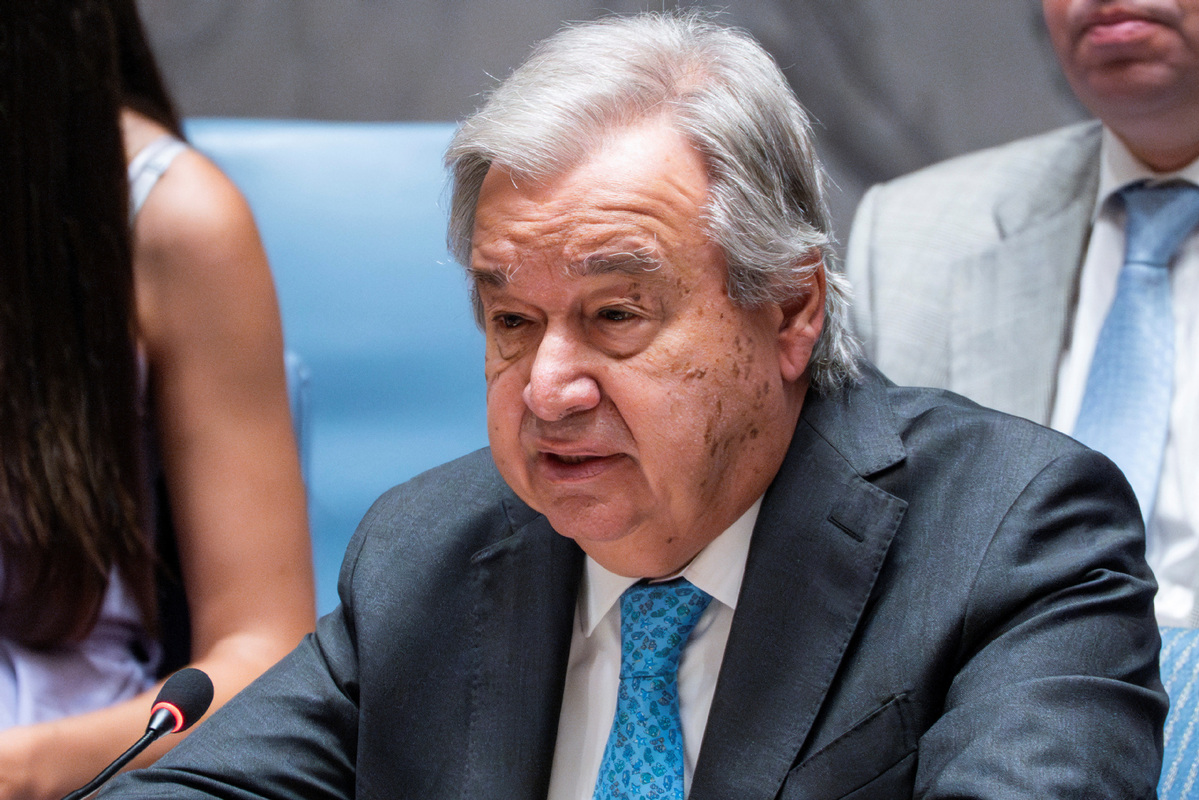
The United Nations and the Gulf Cooperation Council have issued statements condemning the Iranian attack on a United States military base in Qatar amid fears of a wider conflict.
In a post on X, UN Secretary General Antonio Guterres said he was "deeply alarmed by the further escalation of the conflict in the Middle East.
"I strongly condemn today's attack by Iran on Qatar, a country that has been active for peace in the region and further afield," added Guterres.
In a separate statement, GCC Secretary-General Jasem Mohamed Albudaiwi said the Iranian attack constituted a flagrant violation of Qatar's sovereignty.
Albudaiwi added that the security of the GCC states is indivisible, and that the council stands with Qatar in confronting any threat to its security and territorial integrity.
Qatar intercepted most of the Iranian missiles fired late Monday night at the Al Udeid Air Base, the largest US military base in the Middle East. After US attacks against Iran's nuclear sites Saturday, the Iranian military said all US assets in the Middle East were natural targets of retaliation.
Albudaiwi urged efforts to restore stability and prevent further escalation in the region, as well as emphasizing dialogue and diplomacy.
The Arab Parliament, the legislative arm of the Arab League, also condemned the attack, saying it was "a clear breach of international law".
In a statement, the parliament expressed solidarity with Qatar and offered its complete support for any measures it takes to safeguard its sovereignty, security and territorial integrity.
The parliament also reiterated its warning against the expansion of the conflict in the region and the risks of further escalation that could undermine security and stability.
The UAE, Saudi Arabia, Kuwait, Bahrain and Oman issued separate statements condemning the strikes. Lebanese President Joseph Aoun also slammed the attack, while Iraq and Egypt expressed concern over the "dangerous" and escalating situation in the region.
Prime Minister Benjamin Netanyahu said that Israel agreed to US President Donald Trump's ceasefire proposal in a statement on Tuesday morning.
The statement from Netanyahu's office noted that he had agreed to the ceasefire because Israel had achieved all of its war goals.
"Israel has removed an immediate existential threat on two fronts, both in the nuclear domain and in the field of ballistic missiles," the Tuesday statement was reported by The Jerusalem Post.
Cui Haipei in Dubai contributed to this report.
Gulf nations including Qatar, Bahrain and Kuwait reopened their airspace on Tuesday morning following a brief closure the night before, after Iran fired a series of missiles targeting the United States' Al Udeid base in Qatar.
Dubai Airports also confirmed that flight operations have resumed at full capacity after a temporary suspension. The halt in operations came amid heightened tensions following Iranian retaliation for recent US strikes on Iranian nuclear sites.
"While Dubai Airports is working closely with airlines to maintain approved schedules, some delays or cancellations may still occur," a statement from the Dubai Media Office read.
"Passengers are advised to check with their airlines for the latest updates."
Major flight routes have remained cut off since Israel's initial June 13 attack on Iran and the resulting conflict, with the usually busy airspace stretching from Iran and Iraq to the Mediterranean largely devoid of commercial air traffic.
Airlines have been diverting, canceling and delaying flights throughout the region due to airspace closures and safety concerns.
JERUSALEM -- Israel reopens airspace to incoming flights after closure due to conflicts with Iran, Israel's airports authority announced Tuesday morning.
US President Donald Trump had earlier announced that a ceasefire between Israel and Iran would begin, with Iran expected to halt its operations first. Israel has not yet officially confirmed.
JERUSALEM/TEHRAN/NEW YORK -- Iran's Press TV said Tuesday that ceasefire begins following waves of Iranian attacks on Israel.
Early Tuesday, Israel's military said it was working to intercept Iranian missiles launched "a short while ago," without specifying the exact time of the attack.
"A short while ago, sirens sounded in several areas across Israel following the identification of missiles launched from Iran toward the State of Israel," the military said in a statement posted on Telegram around 5:00 am local time (0200 GMT). Iran has since fired waves of missiles at Israel, according to Iranian state media.
Israel's skies are closed to planes until further notice, said Israeli airport authorities.
US President Donald Trump had earlier announced that a ceasefire between the two sides would begin around 0400 GMT, with Iran expected to halt its operations first.
Iranian Foreign Minister Abbas Araqchi said earlier that there was no "agreement" on a ceasefire between Iran and Israel. However, he suggested Iran would be prepared to halt further retaliation if Israeli attacks stopped by 4 am Tehran time (0030 GMT).
"If Israel stops its illegal aggression against the Iranian people no later than 4 am, Iran has no intention of continuing its response afterwards," Araqchi wrote in a post on X, adding that "the final decision on the cessation of our military operations will be made later."
Hours earlier, a senior Iranian official told CNN that Tehran had not received any formal ceasefire proposal from the United States and saw no reason to halt hostilities.
"At this very moment, the enemy is committing aggression against Iran, and Iran is on the verge of intensifying its retaliatory strikes, with no ear to listen to the lies of its enemies," the official was quoted as saying. He added that remarks from US and Israeli leaders would be seen as a "deception" intended to justify further attacks on Iran.
The conflicting narratives raised questions about the implementation and durability of any potential ceasefire. As of Monday night, neither Israeli nor Iranian officials had publicly confirmed any agreement. The White House and the Pentagon had also not issued formal statements, and it remained unclear whether the reported deal had been communicated through diplomatic channels, or whether either side intended to follow the terms.
US President Donald Trump announced Monday evening that Israel and Iran have reached a formal agreement to implement a complete and total ceasefire, marking what he called the end of the "12-Day War."
In a post on his Truth Social platform Monday, Trump said the ceasefire will initially last 12 hours, during which the opposing sides will maintain a posture of "peace and respect."
"On the assumption that everything works as it should, which it will," Trump wrote, "I would like to congratulate both countries... on having the stamina, courage, and intelligence to end what should be called 'THE 12 DAY WAR.'"
Calling the agreement a breakthrough that "could have saved the Middle East from years of destruction," Trump ended his announcement with a sweeping message of unity: "God bless Israel, God bless Iran, God bless the Middle East, God bless the United States of America, and GOD BLESS THE WORLD!"
TEHRAN - Iran's state media said on Tuesday that a fifth wave of missiles was headed towards Israel around the time a staggered ceasefire announced by the United States was due to begin.
"The fifth wave of this morning's missile attack from Iran is on its way to the occupied territories," Irib posted on Telegram just before 0400 GMT.
AFP

China has slammed Israel and the United States for setting a bad example on the world stage through their series of attacks against Iran.
Israel's strikes against Iran, with the stated aim of preventing "possible threats in the future", as well as the US air force of bombing Iran's nuclear facilities, which operate under the supervision of the International Atomic Energy Agency, send an "erroneous signal" to the world, Foreign Minister Wang Yi said.
Wang made the remarks when meeting with former British prime minister Tony Blair in Beijing on Monday.
Differences between countries should be addressed peacefully through dialogue and consultation, Wang said, adding that what Israel and the US have done is set "an egregious precedent" that has already produced serious outcomes.
"One needs strength to protect peace. But strength does not necessarily bring true peace," he added, calling on all parties to deescalate the situation and return to talks.
Blair said Britain, which is following closely the conflict between Israel and Iran, has called for negotiations and the restoration of peace, security and stability in the region as soon as possible.
Wang said "certain major countries" are turning away from their international responsibilities by putting their own interest above the shared interests of the world.
China and Britain, both permanent members of the United Nations Security Council, should shoulder their responsibilities and work for world peace and development, Wang continued, adding that China stands ready to promote sound and steady development of ties with Britain.
Blair said bilateral ties between China and Britain are very important, and that both sides should strengthen exchanges and carry out wide-ranging and mutually beneficial cooperation.

The United States' weekend strikes on Iran's nuclear sites have caused mixed reactions among US politicians — from calls for impeachment to support.
Congresswoman Alexandria Ocasio-Cortez, a Democrat from New York, was the first to call for the impeachment of US President Donald Trump over the attack.
"The president's disastrous decision to bomb Iran without authorization is a grave violation of the Constitution and Congressional War Powers," Ocasio-Cortez wrote on X on Saturday after the news broke.
"He has impulsively risked launching a war that may ensnare us for generations. It is absolutely and clearly grounds for impeachment."
Numerous Democratic lawmakers condemned the strikes as "unconstitutional" because only Congress can authorize action to go to war.
Illinois Representative Sean Casten called Trump's action "impeachable".
"This is not about the merits of Iran's nuclear program. No president has the authority to bomb another country that does not pose an imminent threat to the US without the approval of Congress. This is an unambiguous impeachable offense," Casten posted on X.
Texas Representative Al Green and Michigan Representative Shri Thanedar have been trying to introduce articles of impeachment against Trump, but they have not got much support within the party.
Even some Republicans opposed the move. "This is not Constitutional," Representative Thomas Massie posted on X.
Massie and Democrat Ro Khanna introduced a bipartisan War Powers Resolution bill last week to require Congress to vote for US involvement in Israel's conflict with Iran.
"When two countries are bombing each other daily in a hot war, and a third country joins the bombing, that's an act of war," Massie posted. The bill aims to "prevent America from being dragged into another endless Middle East war", he added.
Other members of Congress also worried that Trump might get the US involved in the conflict. Senator Bernie Sanders last week introduced the No War Against Iran Act to prohibit the use of federal funds for any use of military force in or against Iran without specific Congressional authorization.
'War of choice'
"(Israeli Prime Minister Benjamin) Netanyahu's reckless and illegal attacks violate international law and risk igniting a regional war. Congress must make it clear that the United States will not be dragged into Netanyahu's war of choice," Sanders said. "Another war in the Middle East could cost countless lives, waste trillions more dollars and lead to even more deaths, more conflict and more displacement."
However, some Republican lawmakers are backing Trump's decision.
"The military operations in Iran should serve as a clear reminder to our adversaries and allies that President Trump means what he says," House Speaker Mike Johnson posted on X.
Republican leader in the Senate, John Thune, also commended the military operation and called it a necessary check on Iran's ambitions of developing a nuclear weapon.
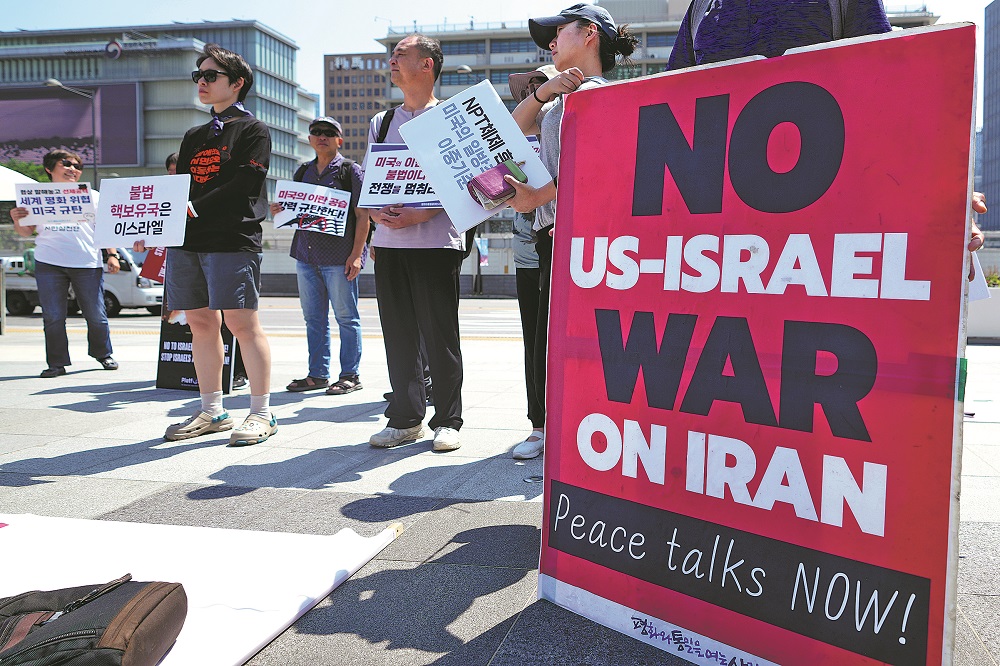
Editor's note: As tensions in the Middle East flare to dangerous new heights, this page explores the global ripple effects of the United States' unprecedented strikes on Iran's nuclear sites. From Teheran's threat to close the Strait of Hormuz to mounting fears of an oil shock that could rattle Asia's growth outlook, the reports trace how a single flashpoint could reshape global markets and geopolitics.
The Strait of Hormuz, one of the world's most critical oil-shipping chokepoints, is again at the center of rising tensions after Iran's parliament voted on Sunday to authorize its potential closure following US airstrikes on Iranian nuclear sites.
The vote, symbolic yet politically charged, empowers Iran's Supreme National Security Council to enact the measure, state media reported. While it does not trigger immediate action, analysts say it underscores Teheran's intent to retaliate against the "blatant act of aggression" by the United States.
Iranian officials insisted the vote does not constitute an immediate closure of the strait but authorizes such action as part of a broader defensive posture.
"Iran has numerous options to respond to its enemies," Behnam Saeedi, a member of the parliament's National Security Committee presidium, told the Mehr news agency on Thursday. "Closing the Strait of Hormuz is one of the potential options."
The strait is the primary export route for Gulf oil producers such as Saudi Arabia. About 20 percent of the world's daily oil consumption — about 18 million barrels — passes through the narrow waterway.
Businesses in Gulf states are closely monitoring any developments, particularly whether the route will remain open, Gulf News reported.
"Yet, there are indications that the strait could be closed, which would disrupt global oil and container trade," said Sajith Marakar, managing director of Consolidated Services Bureau, a marine survey firm in the United Arab Emirates.
"If declared a war zone, cargo insurers for shipping vessels may refuse to cover the risk, halting vessel operations.
"A closure could delay supplies to Bahrain, Kuwait and Qatar. A prolonged disruption might also trigger price hikes for consumer goods in these regions," he said.
Deterrent message
Chen Zhaoyuan, a senior research fellow at the Institute of World Economics and Politics at the Chinese Academy of Social Sciences, said that Iran's move aims to utilize its remaining strategic levers to convey a deterrent message and secure a stronger position in future negotiations with the US, as well as efforts to end the conflict.
"Even this symbolic deterrence has had an adverse impact on global economic expectations. The decline in navigation capacity through the strait is likely to raise oil prices and shipping industry costs in the short term, disrupt global supply chains, and intensify fluctuations in financial markets," Chen said, adding a complete blockade would be Iran's last resort.
On Monday, Goldman Sachs projected that the Brent crude could hit $110 per barrel if oil flows through the strait were halved for a month. Earlier, economists at Oxford Economics had warned that a "worst-case scenario" could see oil prices spike to $130 a barrel, shaving 0.8 percent off global GDP.
"If the strait became non-navigable, it would constitute pretty much an unprecedented negative supply shock for the energy markets," Minna Kuusisto, chief analyst at Danske Bank in Copenhagen, said in a note on Sunday.
However, Ma Xiaolin, dean of the Institute for Studies on the Mediterranean Rim at Zhejiang International Studies University, said it is unlikely for Iran to take the "suicidal" step of closing the strait, describing the threat as more of a signal of dissatisfaction with the US.
"Economically, closing the waterway would cut off Iran's oil exports and sever its trade with the outside world — actions that bring no benefits," he said.
"Militarily, it would constitute an act of war and push Gulf countries to side with Israel and the US. It would lead to a full-scale war with the US, which would seek to reopen the energy corridor."
Asked whether Iran might take low-intensity actions, such as seizing ships, Ma said it would hinge on Iran's overall assessment of its situation.
He cited a Sunday report saying the US gave Iran advance warning before striking its nuclear facilities — a calculated step to avoid an all-out war. However, Iran's response will depend on internal discussions.
For the global shipping industry, this is another crisis in years. Since November 2023, Yemen's Houthis have launched missiles targeting Israeli and commercial vessels in the Red Sea in support of Palestinians over Israel's military campaign in Gaza. It led to the rerouting of ships via the longer passage off the coast of South Africa.
Despite warnings about closing the strait during the Iran-Iraq war in the 1980s and in 2011 amid international sanctions, maritime traffic has remained uninterrupted.
Agencies contributed to this story.
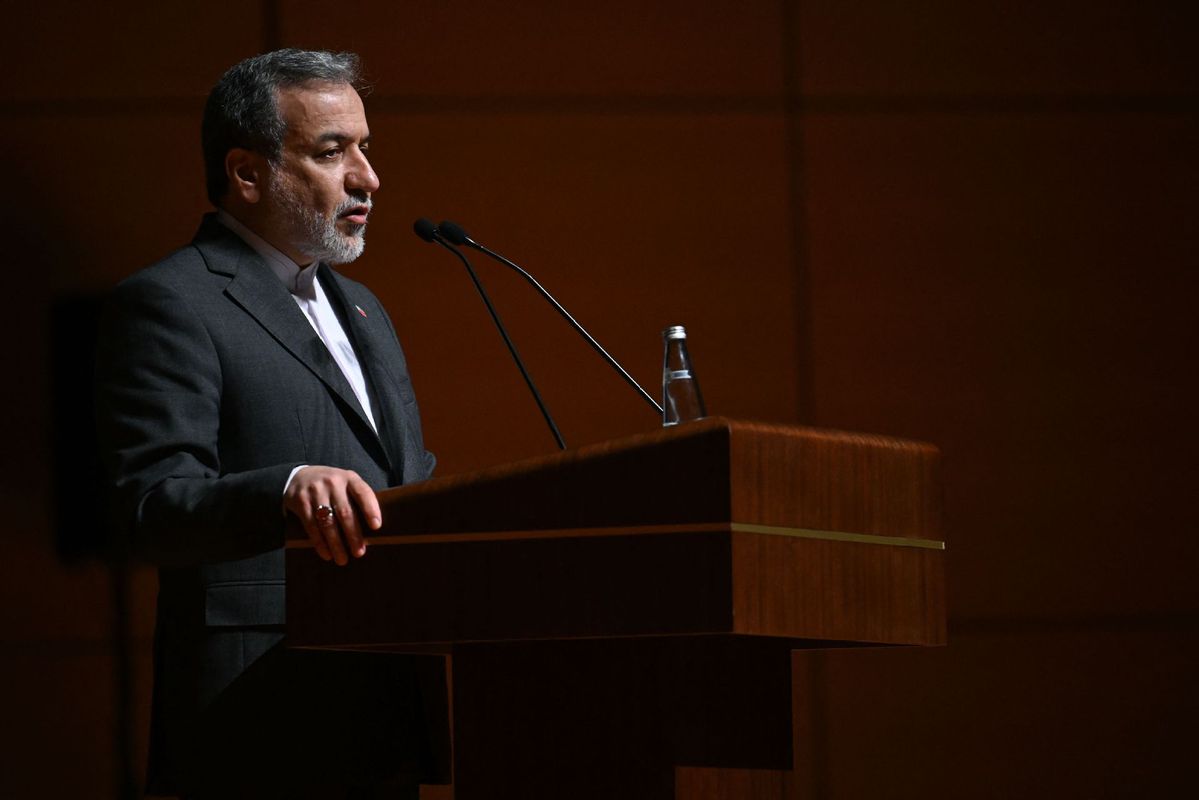
Iranian Foreign Minister Abbas Araghchi indicated willingness for a ceasefire in a message on X in response to claims made by US President Donald Trump regarding a potential ceasefire between Iran and Israel.
"As Iran has repeatedly made clear, Israel launched war on Iran, not the other way around," Araghchi wrote on X.
"As of now, there is NO 'agreement' on any ceasefire or cessation of military operations.
"However, provided that the Israeli regime stops its illegal aggression against the Iranian people no later than 4 am Tehran time, we have no intention to continue our response afterwards," he stressed.
The final decision on the cessation of our military operations will be made later, he added.
Jan Yumul contributed to this report.
As Middle East tensions intensify, Michael Ricafort, chief economist at Manila-based Rizal Commercial Banking Corp, told China Daily that investors are closely monitoring the possibility of Iranian retaliation — a move that could disrupt oil shipments through the Strait of Hormuz. He observed that oil prices have stayed stable despite the recent escalation, but are not going down below $70 per barrel, which could lead to pickup in inflation worldwide.
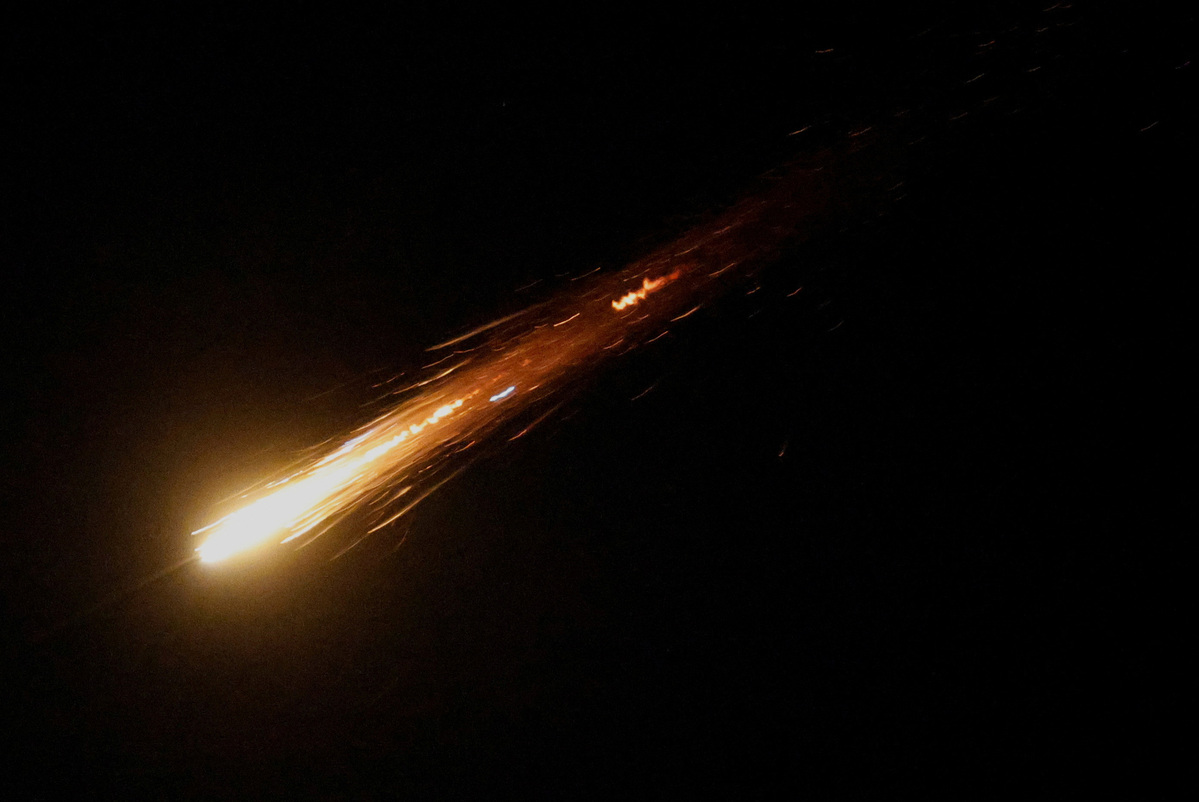
If the US repeats its aggression against Iran, it will "receive more crushing and regrettable responses that will serve as a lesson for history," Commander-in-Chief of the Islamic Revolution Guards Corps, IRGC, Brigadier General Mohammad Pakpour, was quoted by Mehr News Agency as saying.
IRGC stated on Monday night that the message of their decisive counterattacks against earlier US missile bombings is clear and unequivocal for the White House and its allies.
"Accordingly, we would like to remind (everyone) that in this national defense, the US' mobile military bases and targets in the region are not a point of strength, but rather a major weakness and Achilles' heel of this war-mongering regime."
The Supreme National Security of Iran said that in its operation against a US base in Qatar, the country launched an equal number of missiles as the bombs used in Washington's Sunday attacks on Iranian nuclear facilities.
In statement issued on Monday night, the SNSC described how the IRGC targeted the United States' Al-Udeid air base in Qatar in an operation codenamed "Promise of Victory".
"In response to the United States' aggressive and brazen act against Iran's nuclear places and facilities, our powerful Armed Forces destroyed the American forces' air base in Al-Udeid of Qatar a few hours ago," it said in a statement on Monday night quoted by Iran's Tasnim News Agency.
"The number of missiles used in this successful operation was equal to the number of bombs the US used in the attack on Iran's nuclear facilities, and the base targeted in the attack by Iran's powerful forces is far from urban facilities and residential areas in Qatar," the SNSC added.
Iran stressed that its missile attack "did not pose any threat to our friendly and brotherly country, Qatar, and its noble people, and the Islamic Republic of Iran remains committed to maintaining and continuing warm and historic relations with Qatar."
The Iranian missile strikes were in direct response to the US attacks on three Iranian nuclear sites a day earlier.
Cui Haipei in Dubai, UAE contributed to this report.
US President Donald Trump announced on Monday evening that Israel and Iran would soon declare a "total and complete" ceasefire.
"On the assumption that everything works as it should, which it will, I would like to congratulate both Countries, Israel and Iran, on having the Stamina, Courage, and Intelligence to end, what should be called, 'THE 12 DAY WAR'," Trump wrote on his Truth Social site.
Trump's announcement came several hours after Iran launched an attack on US bases in the region, in retaliation for a US attack that severely damaged three of Iran's nuclear facilities. Trump said earlier on Monday that no one was injured in Iran's missile attack on the US base in Qatar, although the country temporarily closed its airspace.
The US president said the ceasefire would be phased in over 24 hours.
Israel began its strikes on Iranian military and nuclear facilities on June 12, and Iran responded with missile attacks on Israel. Dozens of people were killed on the ground in both countries during the conflict.
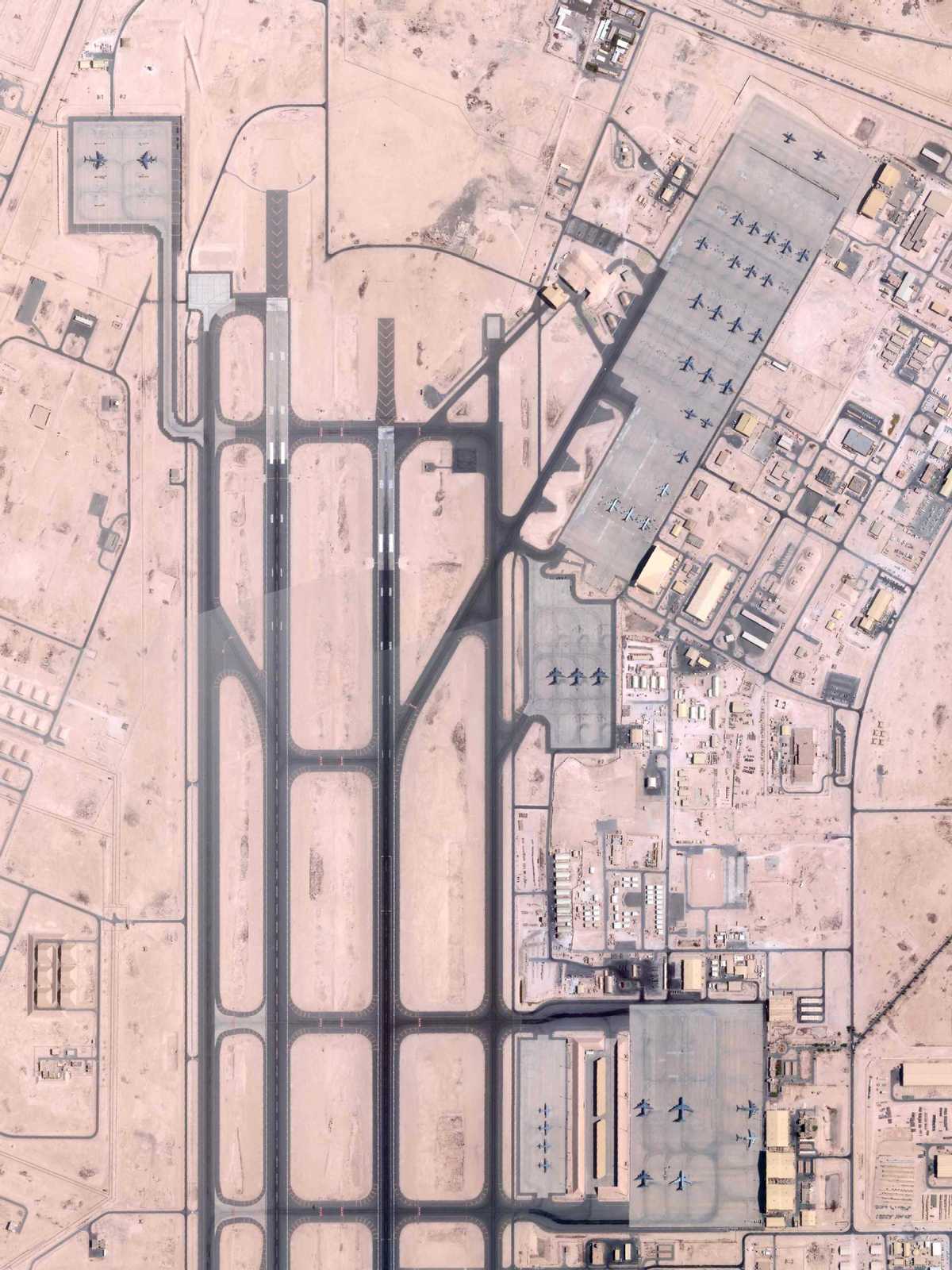
DOHA -- Qatar's air defense systems intercepted 18 of 19 Iranian ballistic missiles targeting the Al Udeid Air Base, which hosts US forces, the Qatari Ministry of Defense announced Monday. One missile impacted inside the base without causing any casualties or material damage.
Shayeq Al-Hajri, deputy chief of Joint Operations, confirmed in a press conference that the missiles were launched in two separate waves. The intercepted missiles were destroyed over the sea after entering Qatari airspace.
"We received intelligence earlier in the day indicating a threat to several regional military installations, including Al Udeid," Al-Hajri stated. He emphasized Qatar's military readiness, noting that its capabilities "go beyond what has been demonstrated."
The attack prompted a temporary suspension of all air traffic. The Qatar Civil Aviation Authority later announced the full resumption of flights, praising the coordination among government agencies to ensure aviation safety.
In a subsequent briefing, Foreign Ministry spokesman Majed Al Ansari said Qatar is weighing a "firm and wise" diplomatic response. He described the attack as a "surprise" given Doha's significant diplomatic efforts to mediate regional conflicts.
Al Ansari confirmed that Iran had provided advance notice of the attack to both the United States and Qatar through diplomatic channels. He affirmed that the incident would not deter Qatar from its ongoing mediation role.
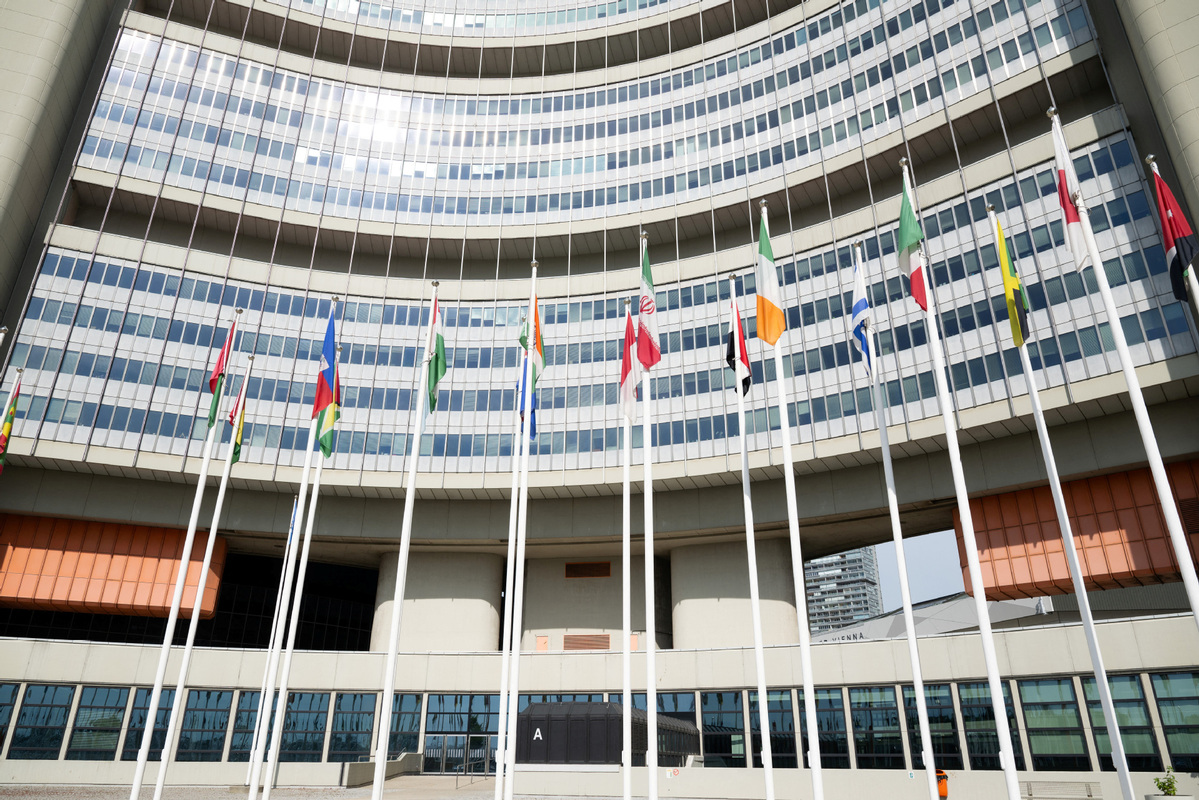
TEHRAN -- Iran's Parliament Speaker Mohammad-Bagher Ghalibaf said on Monday the legislature is moving to approve a plan to suspend Tehran's cooperation with the United Nations nuclear watchdog, as tensions intensify with the United States and Israel.
In a post on social media platform X, Ghalibaf accused the International Atomic Energy Agency (IAEA) of lacking "professional" conduct following recent attacks on Iranian nuclear sites.
"We in the Islamic Consultative Assembly are seeking to approve a plan to halt cooperation with the agency until we receive concrete guarantees of its professional behavior," Ghalibaf said.
The announcement comes after a series of strikes on Iran's nuclear and military infrastructure. On June 13, Israeli airstrikes targeted multiple sites inside Iran, including nuclear and military installations, killing several senior commanders, nuclear scientists, and civilians.
The United States followed on early Sunday with airstrikes on Iran's Fordow, Natanz, and Isfahan nuclear facilities.
The flare-up coincides with a recent resolution by the IAEA's Board of Governors, which, for the first time since 2005, declared Iran non-compliant with its nuclear obligations.
The move followed an IAEA report accusing Tehran of failing to fully explain the presence of nuclear material detected at three undeclared locations, while offering what the agency described as "less than satisfactory" cooperation.
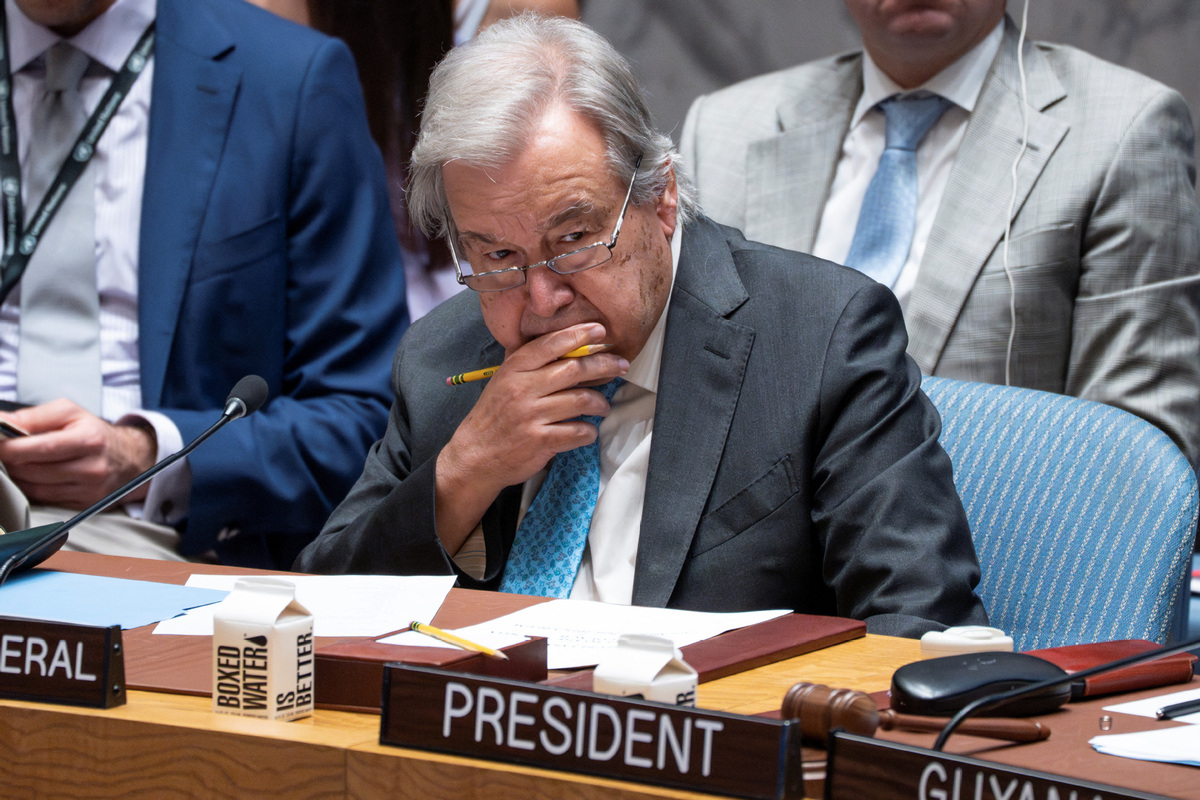
UNITED NATIONS -- UN Secretary-General Antonio Guterres is deeply alarmed by Iran's missile attack on a US military base in Qatar, said his spokesman on Monday.
The secretary-general is deeply alarmed by the further escalation of the conflict in the Middle East. From the outset of the crisis, the secretary-general has repeatedly condemned any military escalation, including Monday's attack by Iran on the territory of Qatar, said Stephane Dujarric, the spokesman, in a statement.
Guterres reiterates his call on all parties to stop fighting. He also urges all UN member states to uphold their obligations under the UN Charter and other rules of international law, said the statement.
